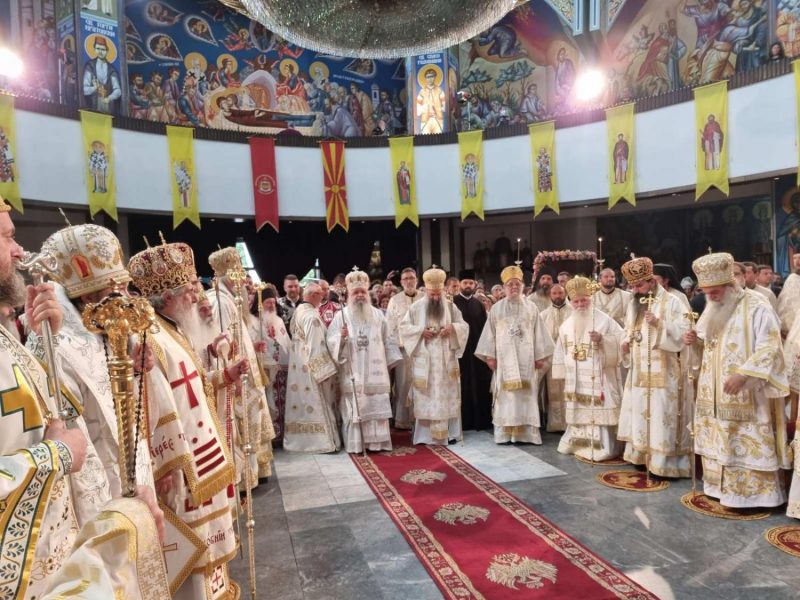
The oscillation between unipolarity and multipolarity in the international system also affects the world of faith. Control over faith groups is gaining importance in managing the process of shaping world politics. Of course, using the world of religions and faith for political and strategic ends or for the sake of power is nothing new. Just like today, controlled religious communities (congregations) were being formed a hundred years ago. Likewise, four hundred years ago, congregations were being use to conduct politics, meddle in the internal affairs of states, make alliances, and change maps. Indeed, religion and faith are prone to being instrumentalized to sway societies.
Recent fluctuations in the Orthodox world are worth noting in this regard. Churches affiliated with the Moscow Patriarchate are drifting away from their center one by one. In truth, Eastern Christianity, or Orthodoxy in particular, is not a structure calling for international religious unity. On the contrary, it is a faith system that nurtures and supports national identity and holds that if this identity does not have a state, it cannot have a church, and if it has a state, it must thus have a national church. The church is in fact an institution that supports its state in creating national identity. Therefore, if the state becomes independent, the affiliated church also becomes independent. This is the typical characteristic of Orthodox churches. Today, since reshaping national identity is among topical concerns, inter-church disputes in Ukraine, Northern Macedonia, or Montenegro, just like in Lithuania and Estonia, create an environment suitable for machinations.[1] Essentially, there is a rivalry between creating renewed national identities or new generations with Western cultural codes and preserving national identities that hold onto traditional perceptions. This rivalry is an element of the struggle for power between Russia and the US that includes serious, deep, long-term, visible and partially invisible goals. Social engineering is targeting identities and perceptions. Religion and faith are, in turn, important tools in managing these perceptions and shaping identity.
The churches in Ukraine that had remained Russia-affiliated getting ready to split from Moscow, the Greek Patriarchate of Istanbul (Phanar/Fener Greek Patriarchate) recognizing the Archbishopric of Ohrid that is under the jurisdiction of Serbian Orthodox Church and its transfer of the Ukrainian churches in Australia to its own jurisdiction are amongst the significant recent developments.
The Split from the Moscow Patriarchate
The most recent development has been on 27 May 2022 with the Russia-affiliated Ukrainian Orthodox Church announcing that is splitting from the Moscow Patriarchate due to Russian Patriarch Kirill’s stance on the war.[2] Kirill had blessed the Russian military forces that occupied Ukraine and avoided condemning attacks on civilians. Although the Moscow Patriarchate declared that it was not officially notified about the split, half of the bishops affiliated to the Ukrainian Orthodox Church had already stopped commemorating Patriarch Kirill in their prayers. Not commemorating the patriarch during services is the first step of a church-split. During the ceremony held at the Ukrainian Orthodox Church on 29 May 2022, the Metropolitan Onufriy commemorated Kirill's name in third place after the Patriarchs of Antioch and Jerusalem, but without using the phrase "our great master and father", which he had previously used. At the same time, no mention was made of Greek Patriarch of Istanbul Bartholomew, who approved the separatist Kyiv Orthodox Church, or the leaders of the Orthodox Churches of Athens, Cyprus, and Alexandria who recognised this decision.[3] Therefore, it can be argued that the Ukrainian Orthodox Church has not yet changed its position completely in terms of inter-church relations.
The Moscow Patriarchate held an extraordinary council meeting, followed by a decision in which it "expressed all its support and understanding to the Archbishop, bishops, monasteries, priests and non-priests of the Ukrainian Orthodox Church who were subjected to unprecedented pressure from local authorities, media, extremist organizations, and nationalist parts of the country", reminded that any changes to the statute of the Ukrainian Orthodox Church should be submitted to the approval of the Moscow Patriarchate, emphasized that Russian Patriarch Kirill deeply empathized with everyone affected by the war, called for the prevention of the casualties of civilians, and the delivery of humanitarian aid to those affected including refugees.[4] Although the Moscow-affiliated Ukrainian Orthodox Church seems to have not changed its position for the time being, this change will eventually take place as the criticism by the bishops and priests who form and sustain the Church against the Moscow Patriarchate begins to propagate. Therefore, a split has begun in the Ukrainian Church under the Moscow Patriarchate as well. With the split of the Kyiv Church, the Moscow Patriarchate had already lost 40% of its parishioners in Ukraine. Now, it is about to lose half its remaining parishioners. With the change in the church structure, the parishioners' idea of friends/enemies, threats and sympathy will also change, and the perception of national identity will be renewed accordingly. Therefore, this indicates a great geopolitical defeat and soft power loss for Russia.
An Appropriate Address for Orthodox Communities: Fener Greek Patriarchate
Kirill's attitude is also problematic for faith groups within Russia.[5] The perception that regards the Ukrainian people as a part of the Russian nation regards the war as fratricide and that the Church approves this fratricide. Churches around the world (especially those in the Western parts such as Estonia and Lithuania) that adhere to the spiritual authority of the Moscow Patriarchate are also similarly disturbed by this situation. In fact, a sizable church consisting of Ukrainian, Russian, and Eastern European immigrants located in Udine in the northeast of Italy left the Moscow Patriarchate and announced that they would be under the Fener Greek Patriarchate from then on. It can be said that the Russian churches in the diaspora will gradually cut their ties with Moscow and enter into a spiritual hierarchical relationship with the Fener Greek Church the West considers as appropriate. It should be underlined that the psychological warfare carried out through the press and politically against Russia is the main determinant in this situation. As a matter of fact, Western media spreads comments which directly target the Moscow Patriarchate, and declares that Russian Patriarch Kirill supports Putin's war, that he is the main supporter of Putin’s ideology, that Kirill is from the KGB, and that the Church acts as the propaganda machine of the state.[6] It seems that the way for the Russians living in the western countries to maintain their peaceful life is to disassociate themselves from the vilified Putin and Kirill, and to either change the churches they are associated with or to cut their churches’ ties with the Moscow Patriarchate.
It should also be noted that the effort to link European Orthodox churches to a single center is nothing new. 10% of the total EU population identify themselves as Orthodox Christians.[7] Half of the 300 million Orthodox population consists of Russians affiliated with the Moscow Patriarchate, some of whom live in Western countries and continue the services within their own churches. A similar initiative is the effort to create a European Muftiate for the management of Muslim communities from a single center. Considering that the current population of Muslims in Europe is 44 million, it is understood there is a desire to connect religious/faith groups to controllable contact centers in order to ensure stability. This project is not new, but Russia's attacks are having an accelerating effect on these initiatives.
Reshaping the Orthodox People in the Balkans
The Sen Sinod (Clerical Assembly), the decision-making body of the Fener Greek Patriarchate, recognized the Archbishopric of Ohrid at its official meeting held on 9 May 2022,[8] indicating an attempt similar to that in 2018 regarding the separatist church in Ukraine. This recognition meant to the restoration of the Archbishopric of Ohrid's canonicity, meaning its re-entry into the sacred circle by withdrawing the accusations that it was acting schismatically (as in, the decision indicating that the said archbishopric was deviating from religion). In the second article of the decision, it is stated that the solution of the administrative problems between the Archbishopric of Ohrid and the Macedonian Orthodox Church is left to the Serbian Orthodox Church. This is an important detail showing that the Serbian Orthodox Church has been given the chance to choose its side in a sense. Indeed, the Serbian Orthodox Church supported Moscow during the church split in Ukraine and stopped commemorating the Fener Greek Patriarchate in their services. However, if it does not accept the Archbishopric of Ohrid's re-entry into the religious hierarchy, then another church will be established in its jurisdiction. Moreover, the next step will be the establishment of a new church in Montenegro. Accordingly, alongside the large church linked to the Serbian Orthodox Church, there is the possibility of the establishment of a new church in Montenegro will appeal to the citizens who see themselves as ethnically separate from Serbs. The Fener Greek Patriarchate is also active here. Making a strategic move, the Serbian Orthodox Church followed the move of the Fener Greek Patriarchate and accepted the decision of the restoration of Archbishopric of Ohrid's canonicity on 16 May 2022. Furthermore, it granted the autocephaly of the Archbishopric of Ohrid on 24 May 2022[9] and organized a common prayer, which can be viewed as a "celebration of reconciliation". On the other hand, in the European Parliament's Resolution of 9 March 2022 on Foreign Interference In EU Democratic Processes, the Serbian Orthodox Church was described as an actor in the Russia-Ukraine conflict, and accused of developing an anti-European agenda and promoting Russia as a guardian of traditional family values.[10] In short, the Serbian Orthodox Church chose to become a part of a process that it could not halt and wanted to maintain its position.
The Fener Greek Patriarchate, by its decision of 9 May 2022,[11] declared that the Ukrainian communities and parishioners under the authority of Metropolitan Anthony of Hierapolis would then be under the authority of the Australian Archdiocese and Archbishop Makarios[12]. In other words, six churches under the Kyiv Church were transferred to the governance of the Australian Greek Orthodox Church under the Fener Greek Patriarchate. This decision emphasizes that the Patriarchate has never recognized Metropolitan Filaret (Filaret Denysenko) as either “Kyiv Patriarch” or “Kriv Patriarchate”, and states that Filaret cannot establish a Vicariate (regency) in Australia. Therefore, the jurisdiction of the Australian Archdiocese will also apply to Ukrainian communities in Australia. This means that the Fener Greek Orthodox Patriarchate has added Ukrainians as its parishioners alongside the Greek communities living in Australia. Indeed Fener Greek Orthodox Church's parishioners, which accept the religious authority of this church, are essentially made up of the Greek diaspora spread around the world and the communities living in the northern parts and on the islands which were later connected to Greece. Now, Ukrainians have been incorporated into this circle. Ukrainians were previously under the religious authority of the Moscow Patriarchate. The split of the Kyiv Church from the Moscow Patriarchate was achieved by being transferred to the Fener Greek Patriarchate. With the new developments, the circle has been expanded and the diaspora under this church has been directed to the Fener Greek Patriarchate. It is likely that a similar situation will be the case for some 40 churches in Western Europe and other Ukrainian diaspora churches. However, it was initially assumed that Ukraine would have its own national church which would be granted autocephaly/independence like it was the case for the Greek Church in 1833, the Bulgarian Church in 1870, the Serbian Church in 1879, and the Romanian Church in 1885. With this decision, it is implied that Metropolitan Filaret's struggle to make the Ukrainian Church autocephalous will bear no result. Thus, it can be said that Filaret could not attain his goal and instead became a pawn in a design, in a new order.
Conclusion
Competition between the churches in terms of determining authority and jurisdiction has become much more evident in the final phase of the power struggle between the US and Russia. If the struggle of the US against Russia is examined through the Churches, it can be said that the field of authority of the Russian Church in the West has been weakened. The decision taken by the Russian Orthodox Church Council on 29 December 2021 to create the Autocephalous African Exarchate shows that the changes in the geography of religion will be extended to Africa as well. This time, the Russian Patriarchate is establishing churches in the jurisdiction of the Patriarchate of Alexandria. While the new world order is being formed, the spiritual centers of the parishioners and the inter-church relations are being reconstructed.
The use of the Fener Greek Patriarchate in the design of the geography of religion is itself a problem. The Fener Greek Patriarchate is a Turkish institution subject to the laws of the Republic of Türkiye. It solely exists to meet the religious needs of the people of Rum heritage (Turkish Greek) in Istanbul. In fact, Türkiye's responsibility is only to ensure that the religious freedom of its minorities is met. In terms of the Treaty of Lausanne, the Fener Greek Patriarchate’s status is no special different from the Turkish Muftiates (in fact, the Grand Muftiate) in Western Thrace. The Fener Greek Patriarchate acts contrary to the conditional permission that it was granted for remaining in Türkiye by trying to transfer the spiritual leadership of the Orthodox World (with the exception of Russia) to Türkiye and Istanbul. The Patriarchate's legal status is not suitable for such a positioning, and this will transfer the pressure to change its legal status onto Ankara. Undoubtedly, this push will also challenge Türkiye's regulations and values related to secularism. The Fener Greek Patriarchate seeks a status that it had neither in the Byzantine nor the Ottoman period; at every stage of its history, its jurisdiction could only span as much as the borders of the state it was in. Today, to acquire an unprecedented position, it meets with state officials from Ukraine, Macedonia, and Montenegro and voluntarily joins projects by the US and the EU. Türkiye has no obligation, responsibility, or duty to ensure that Western Orthodoxy is governed from a single center. Moreover, the Patriarchate, which has the status of an archbishopric, has no right to place Türkiye under such a big burden.
*Photo: “Serbian Patriarchate Recognizes the Autocephaly of the Macedonian Orthodox Church – Ohrid Archbishopric” – Source: https://ocpsociety.org/serbian-patriarchate-recognizes-the-autocephaly-of-the-macedonian-orthodox-church-ohrid-archbishopric/
[1] For issues related to these churches, please see; Gözde Kılıç Yaşın, "The Macedonian Church to Serve Building New Macedonian Identity", Diplomatic Observer, March 2019; Gözde Kılıç Yaşın, "Patrikhane, Atina, Moskova Çatışması Gölgesinde Yunanistan’da Anayasa Değişikliği", 2 Ocak 2019, https://21yyte.org/tr/merkezler/bolgesel-arastirma-merkezleri/balkanlar-ve-kibris-arastirmalari-merkezi/patrikhane-atina-moskova-catismasi-golgesinde-yunanistan-da-anayasa-degisikligi ; Gözde Kılıç Yaşın, "Karadağ’da Devlet-Kilise Çatışması", Diplomatik Gözlem, p. 98, Mart 2020 ; Gözde Kılıç Yaşın, "Pandora’s Box In The Balkans", Diplomatic Observer, p.155, January 2021.
[2] "Ukrainian Orthodox Church Breaks With Moscow Over War", New York Times, 28 May 2022, https://www.nytimes.com/2022/05/28/world/europe/ukraine-orthodox-church-moscow.html
[3] "Глава УПЦ помянул патриарха Кирилла в литургии как глава независимой церкви", 29 May 2022, https://ria.ru/20220529/tserkov-1791577331.html?in=t
[4] "ЖУРНАЛ Священного Синода от 29 мая 2022 года", 29 May 2022, http://www.patriarchia.ru/db/text/5931468.html
[5] According to PEW Research Center data, 71% of the people in Russia and 78% of the people in Ukraine identify themselves as Orthodox. Please see; “Split between Ukrainian, Russian churches shows political importance of Orthodox Christianity", 14 January 2019, https://www.pewresearch.org/fact-tank/2019/01/14/split-between-ukrainian-russian-churches-shows-political-importance-of-orthodox-christianity/
[6] "Why is Russia’s church backing Putin’s war? Church-state history gives a clue", 21 March 2022, https://theconversation.com/why-is-russias-church-backing-putins-war-church-state-history-gives-a-clue-178732 ; "Putin’s war creates schism in Russian Orthodox Church", 1 May 2022, https://www.cbsnews.com/news/putins-war-russian-orthodox-church/
[7] For the Eurobarometer study titled "Discrimination in the European Union" conducted in May 2019, please see; https://europa.eu/eurobarometer/surveys/detail/2251
[8] "Phanar: Yes to the recognition, no to “Macedonia” for the Archdiocese of Ohrid", Orthodox Times, 9 May 2022, https://orthodoxtimes.com/phanar-yes-to-the-recognition-no-to-macedonia-for-the-archdiocese-of-ohrid/
[9] "Patriarchate of Serbia recognizes the autocephaly of Archdiocese of Ohrid", Orthodox Times, 24 May 2022, https://orthodoxtimes.com/patriarchate-of-serbia-recognizes-the-autocephaly-of-archdiocese-of-ohrid/ ; "Ecumenical Patriarch: The Concelebration in Belgrade is a great event", Orthodox Times, 23 May 2022, https://orthodoxtimes.com/ecumenical-patriarch-the-concelebration-in-belgrade-is-a-great-event/
[10] "Foreign interference in all democratic processes in the European Union", European Parliament resolution of 9 March 2022 on foreign interference in all democratic processes in the European Union, including disinformation (2020/2268(INI)), https://www.europarl.europa.eu/doceo/document/TA-9-2022-0064_EN.pdf, accessed on 27/03/2022.
[11] "Archbishop Makarios receives Ecumenical 'vote of confidence' to take Ukrainian parishes under his wing", Neos Kosmos, 13 May 2022, https://neoskosmos.com/en/2022/05/13/news/community/archbishop-makarios-receives-ecumenical-vote-of-confidence-to-take-ukrainian-parishes-under-his-wing/ ; "Archbishop Makarios of Australia is the shepherd of all Ukrainian parishes in Australia", Orthodox Times, 9 May 2022, https://orthodoxtimes.com/archbishop-makarios-of-australia-is-the-shepherd-of-all-ukrainian-parishes-in-australia/
[12] Makarios Griniezakis, "New Archbishop Makarios arrives in Australia to a huge warm welcome", https://greekcitytimes.com/2019/06/19/new-archbishop-makarios-receives-a-warm-welcome-on-arrival-to-australia/
© 2009-2025 Center for Eurasian Studies (AVİM) All Rights Reserved
No comments yet.
-
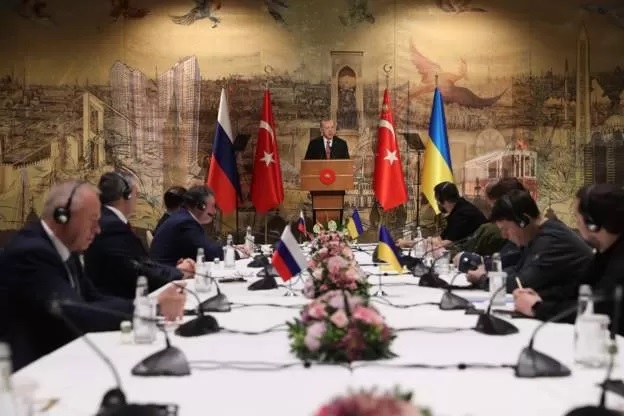 GEARS OF DIPLOMACY: TURKEY JOINING THE EQUATION
GEARS OF DIPLOMACY: TURKEY JOINING THE EQUATION
Gözde KILIÇ YAŞIN 16.05.2022 -
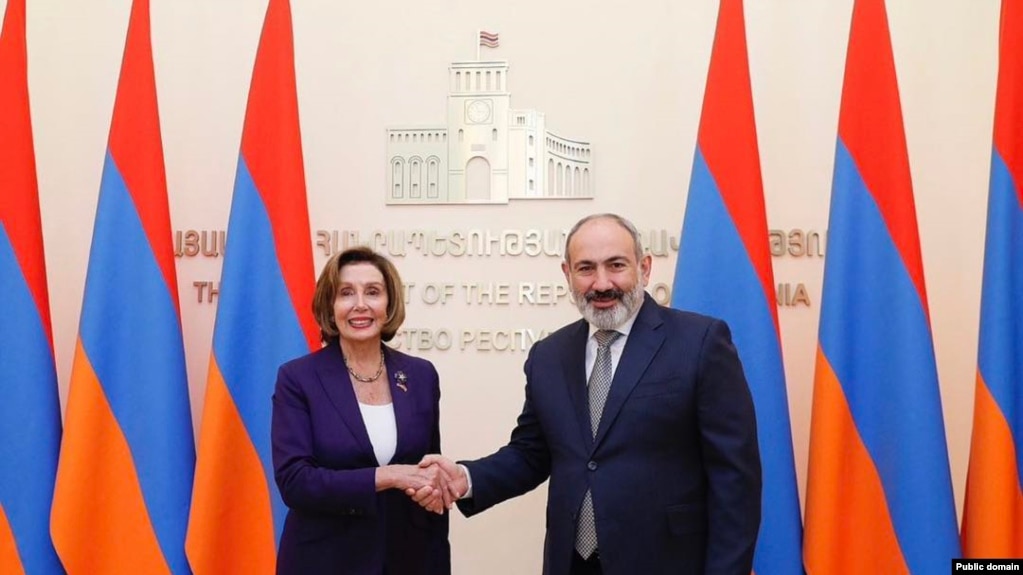 SUPPORT TO ARMENIA, INTIMIDATION AGAINST THE CAUCASUS, BLOCKADE TOWARDS RUSSIA
SUPPORT TO ARMENIA, INTIMIDATION AGAINST THE CAUCASUS, BLOCKADE TOWARDS RUSSIA
Gözde KILIÇ YAŞIN 21.09.2022 -
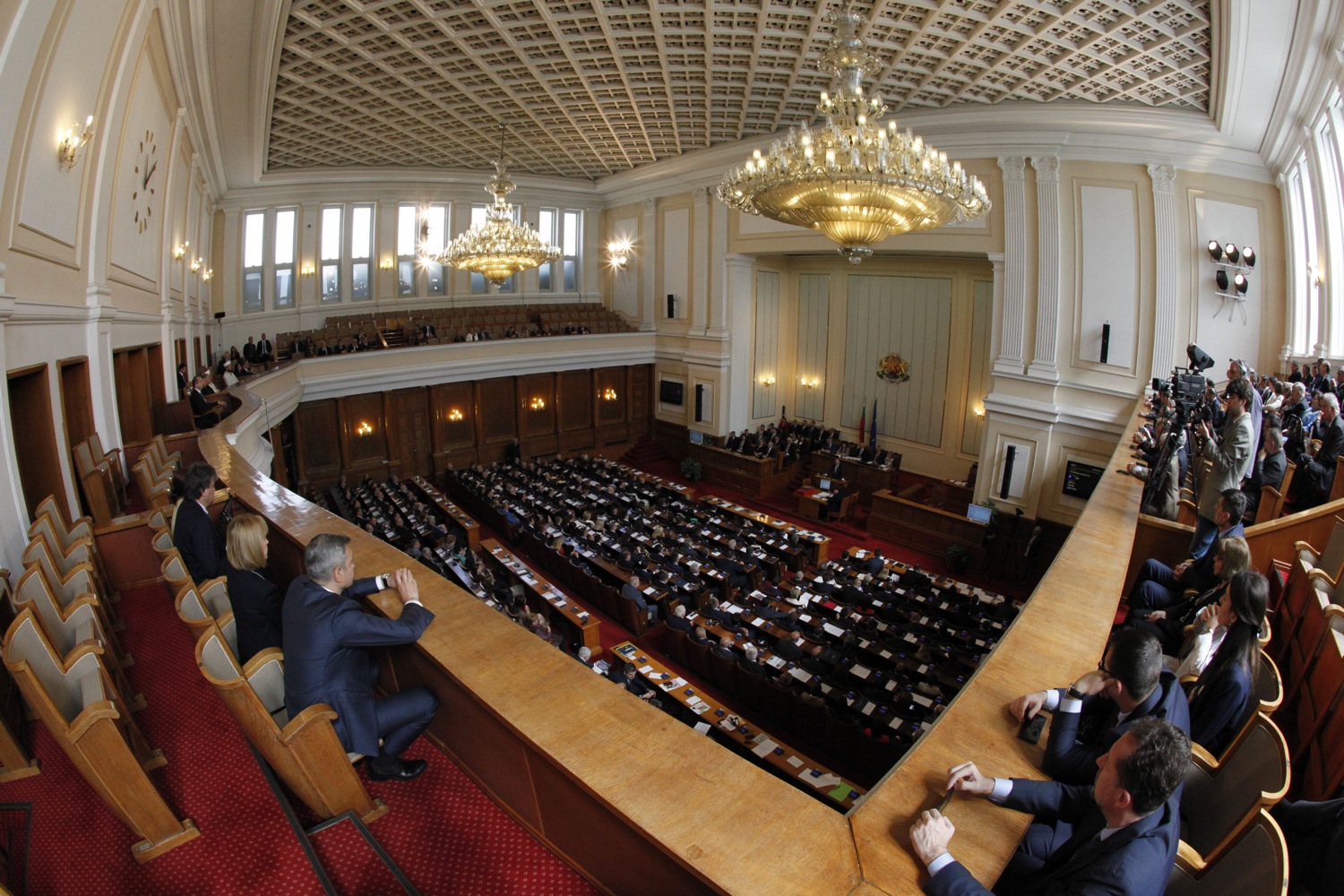 THE NECESSITY FOR A GOVERNMENT THAT CAN PULL BULGARIA OUT OF CRISIS
THE NECESSITY FOR A GOVERNMENT THAT CAN PULL BULGARIA OUT OF CRISIS
Gözde KILIÇ YAŞIN 29.05.2023 -
 DESIGNING THE GEOGRAPHY OF RELIGION IN THE NEW WORLD ORDER: DIVISIONS IN ORTHODOXY
DESIGNING THE GEOGRAPHY OF RELIGION IN THE NEW WORLD ORDER: DIVISIONS IN ORTHODOXY
Gözde KILIÇ YAŞIN 10.06.2022 -
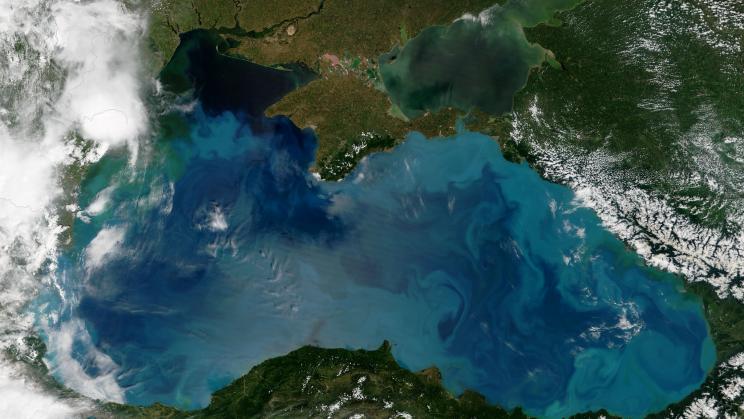 RISKS AND OPPORTUNITIES REGARDING THE BLACK SEA SAFETY
RISKS AND OPPORTUNITIES REGARDING THE BLACK SEA SAFETY
Gözde KILIÇ YAŞIN 30.06.2022
-
 AN ATTEMPT TO REVIVE ARMENIAN ULTRA-NATIONALIST TERRORISM: THE CONTENT OF THE FBI REPORT
AN ATTEMPT TO REVIVE ARMENIAN ULTRA-NATIONALIST TERRORISM: THE CONTENT OF THE FBI REPORT
Hazel ÇAĞAN ELBİR 10.10.2024 -
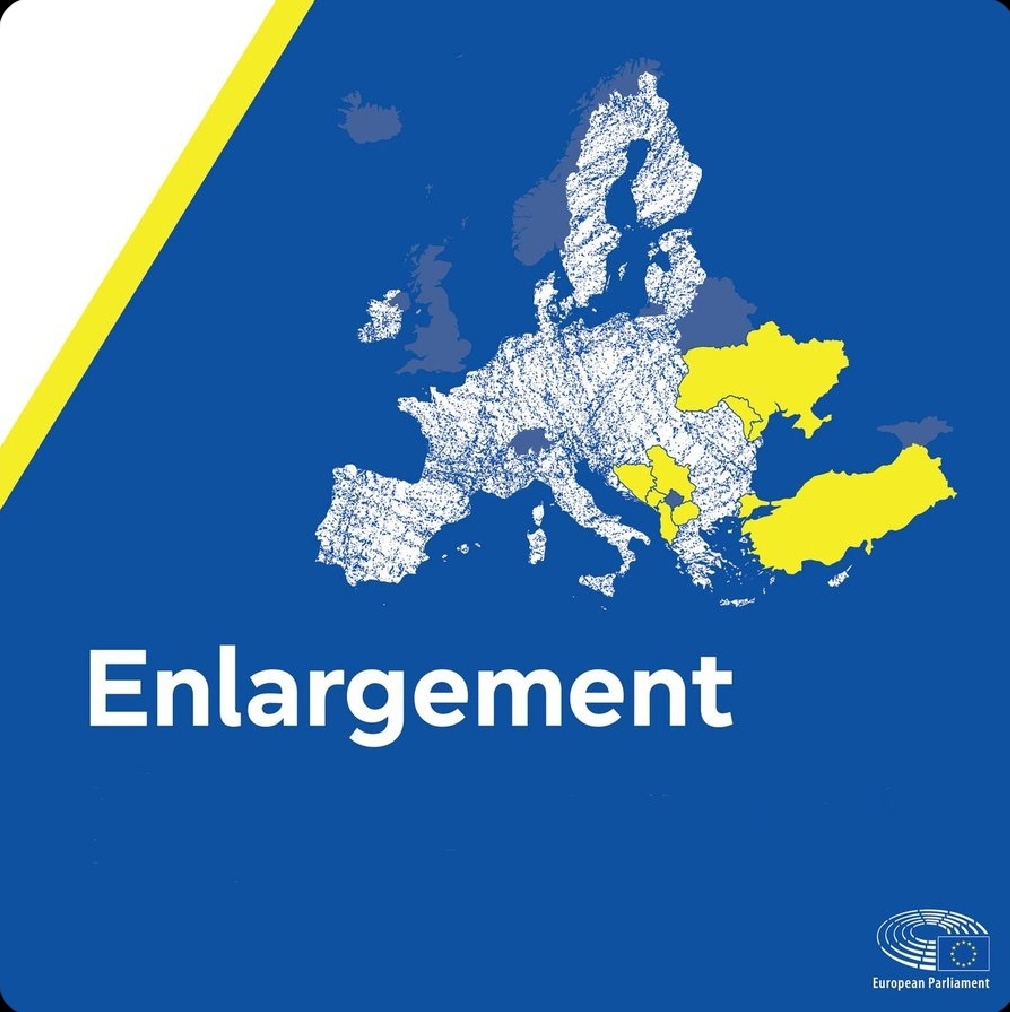 THE EU'S ENLARGEMENT PARADOX: POLITICS OVER PRINCIPLES?
THE EU'S ENLARGEMENT PARADOX: POLITICS OVER PRINCIPLES?
Teoman Ertuğrul TULUN 25.01.2024 -
 TURKIYE-CHINA RELATIONS: OPPORTUNITIES AND CHALLENGES
TURKIYE-CHINA RELATIONS: OPPORTUNITIES AND CHALLENGES
Seyda Nur OSMANLI 22.11.2024 -
D.L. PHILLIPS’S DIPLOMATIC HISTORY OF THE TURKEY-ARMENIA PROTOCOLS (FULL TEXT)
Ömer Engin LÜTEM 02.04.2012 -
 NİKOL PASHİNYAN’S SPEECH IN THE WORLD WAR I ARMISTICE EVENT REVEALS HIS INTENTIONS REGARDING 1915 EVENTS
NİKOL PASHİNYAN’S SPEECH IN THE WORLD WAR I ARMISTICE EVENT REVEALS HIS INTENTIONS REGARDING 1915 EVENTS
AVİM 19.12.2018
-
25.01.2016
THE ARMENIAN QUESTION - BASIC KNOWLEDGE AND DOCUMENTATION -
12.06.2024
THE TRUTH WILL OUT -
27.03.2023
RADİKAL ERMENİ UNSURLARCA GERÇEKLEŞTİRİLEN MEZALİMLER VE VANDALİZM -
17.03.2023
PATRIOTISM PERVERTED -
23.02.2023
MEN ARE LIKE THAT -
03.02.2023
BAKÜ-TİFLİS-CEYHAN BORU HATTININ YAŞANAN TARİHİ -
16.12.2022
INTERNATIONAL SCHOLARS ON THE EVENTS OF 1915 -
07.12.2022
FAKE PHOTOS AND THE ARMENIAN PROPAGANDA -
07.12.2022
ERMENİ PROPAGANDASI VE SAHTE RESİMLER -
01.01.2022
A Letter From Japan - Strategically Mum: The Silence of the Armenians -
01.01.2022
Japonya'dan Bir Mektup - Stratejik Suskunluk: Ermenilerin Sessizliği -
03.06.2020
Anastas Mikoyan: Confessions of an Armenian Bolshevik -
08.04.2020
Sovyet Sonrası Ukrayna’da Devlet, Toplum ve Siyaset - Değişen Dinamikler, Dönüşen Kimlikler -
12.06.2018
Ermeni Sorunuyla İlgili İngiliz Belgeleri (1912-1923) - British Documents on Armenian Question (1912-1923) -
02.12.2016
Turkish-Russian Academics: A Historical Study on the Caucasus -
01.07.2016
Gürcistan'daki Müslüman Topluluklar: Azınlık Hakları, Kimlik, Siyaset -
10.03.2016
Armenian Diaspora: Diaspora, State and the Imagination of the Republic of Armenia -
24.01.2016
ERMENİ SORUNU - TEMEL BİLGİ VE BELGELER (2. BASKI)
-
AVİM Conference Hall 24.01.2023
CONFERENCE TITLED “HUNGARY’S PERSPECTIVES ON THE TURKIC WORLD"









